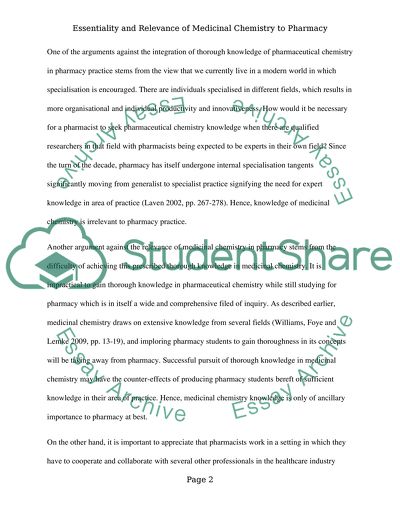Cite this document
(“Essentiality and Relevance of Medicinal Chemistry to Pharmacists Essay”, n.d.)
Essentiality and Relevance of Medicinal Chemistry to Pharmacists Essay. Retrieved from https://studentshare.org/health-sciences-medicine/1436955-essentiality-and-relevance-of-medicinal-chemistry-to-pharmacists
Essentiality and Relevance of Medicinal Chemistry to Pharmacists Essay. Retrieved from https://studentshare.org/health-sciences-medicine/1436955-essentiality-and-relevance-of-medicinal-chemistry-to-pharmacists
(Essentiality and Relevance of Medicinal Chemistry to Pharmacists Essay)
Essentiality and Relevance of Medicinal Chemistry to Pharmacists Essay. https://studentshare.org/health-sciences-medicine/1436955-essentiality-and-relevance-of-medicinal-chemistry-to-pharmacists.
Essentiality and Relevance of Medicinal Chemistry to Pharmacists Essay. https://studentshare.org/health-sciences-medicine/1436955-essentiality-and-relevance-of-medicinal-chemistry-to-pharmacists.
“Essentiality and Relevance of Medicinal Chemistry to Pharmacists Essay”, n.d. https://studentshare.org/health-sciences-medicine/1436955-essentiality-and-relevance-of-medicinal-chemistry-to-pharmacists.


